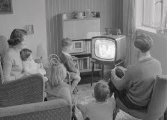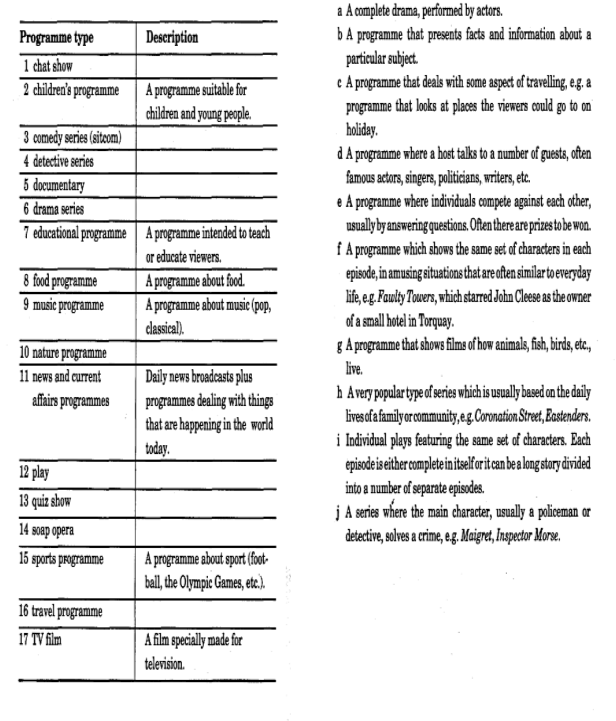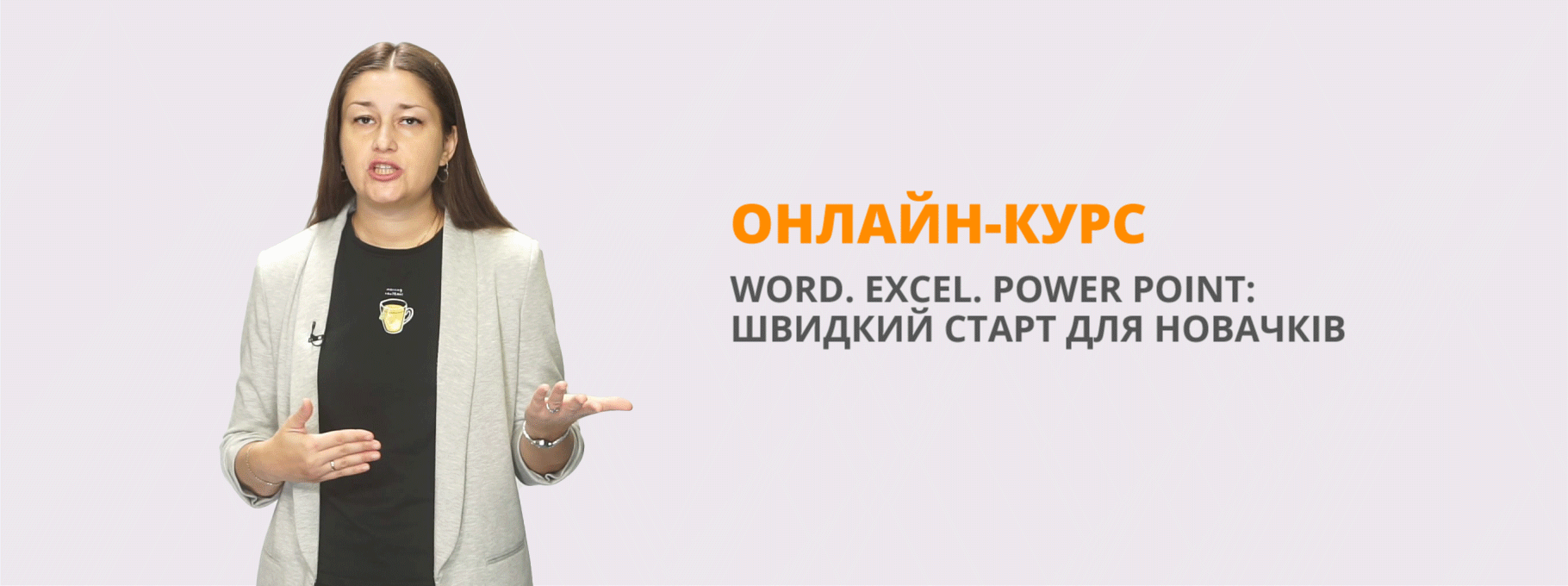Розробка уроку на тему "Are TV and radio actual today?"
LESSON №3
Level – Intermediate.
Topic: Are TV and radio actual today?
Objectives:
1. To expand pupils’ vocabulary on the topic; to activate students’ usage of words and phrases for discussion; to enrich students’ knowledge of technologies; to practice students’ skimming and scanning while reading; to involve students into pair and group working.
2. To develop students’ skills in reading, listening, writing and speaking.
3. To encourage students to express their opinion on the topic; enhance the socio-cultural competence of students when exploring the information about radio and TV; to broaden students’ outlook on the topic.
4. To educate the desire for being informed.
Equipment: a laptop, a blackboard, handout materials.
PROCEDURE OF THE LESSON
I. Introduction
1. Greeting.
Good afternoon children. I’m glad to see you. How are you today? Are you glad to be at school today?
2. Warm up.
Look at the pictures on the blackboard. What can you see? What are people doing?







3. Aim.
Well, today we’ll speak about TV and radio, and their functions today. We’ll revise vocabulary on the topic and practice in using it. We’ll read and listen to the information on the topic . By the end of the lesson you’ll be able to participate in common conversational exchange on the topic using the information you get.
II. The basic part of the lesson.
1. The introduction of new vocabulary.
- Fill in the mind-map. Divide vocabulary into nouns, adjectives, verbs and word-combinations.

![]()
![]() adjectives nouns
adjectives nouns

![]()
![]()
word-combinations verbs
- Use active vocabulary in your sentences on the topic “ TV and Radio”. Read your sentences and ask your classmates to translate them.
2. Listening.
Pre-listening.
Match the programme type with its description.

- What is your favourite type of programme? Why?
While-listening.
Find the correct answer.
1. When is the reality showing on TV? What channel is showing the program?
A. at 7:00 on channel 5
B. at 7:30 on channel 7
C. at 8:00 on channel 11
2. Why does the man not want to watch the reality show?
A. He watched the same program last week.
B. He isn't interested in show's theme.
C. He wants to go swimming instead.
3. How does the man feel about watching Star Wars on TV?
A. He wouldn't mind seeing it again.
B. He'd like to watch it if he had more time.
C. He'd prefer to watch something else.
4. Which statement best describes the man's feelings about watching the home improvement show?
A. He doesn't want to watch because his wife will expect him to fix things around the house.
B. He thinks that he will be able to get a better job by learning from the show.
C. He thinks it is easier to get someone else to repair their problems around the house.
5. What does the couple decide to watch?
A. a TV drama
B. a sports event
C. a talk show
After-listening.
-
 My brothers ______________ watching suspense movies.
My brothers ______________ watching suspense movies.
- I've seen that movie a _____________ times, and I still like it.
- We can watch __________ of old TV shows on that channel at 11:00.
- You should _______________ instead of staying up late and watching movies.
- She was ____________ after a long day at work and went right to bed.
3. Reading.
Pre-reading.
- Are TV and radio popular today? Why or why not?
- Do you prefer listening to music to watching TV? Why?
Over 1,000 Britons were polled via their smartphones and asked to record what media they were consuming and to rate their mood and energy levels while doing so.
Radio came out top, beating both TV and online, in the study called ‘Media and the Mood of the Nation’, with respondents recording a 100 per cent lift in happiness and 300 per cent boost to their energy levels when listening to a radio show versus not consuming any type of media at all.
Watching TV and surfing the internet also significantly boosts people’s happiness and energy levels, but failed to come close to the positive effect radio listening has on Britons’ well-being.
“People are the happiest and most energetic when listening to radio. It plays an important emotional role in people’s lives,” said Mark Barber, planning director at the Radio Advertising Bureau which commissioned the research.
“People use radio as a lifestyle support system and to make themselves feel better about their lives… Our latest research highlights the immense potential of radio to influence emotions.”
The study found that listening to the radio increases people’s happiness levels nearly twice as much as watching TV does, and gives them four times the amount of perceived energy. Similarly radio trumped people’s feelings when online, especially in the energy stakes. Those listening to radio said that they felt three times more energetic than they did when browsing the web.
A separate part of the study also used EEG brain scans to further monitor people’s reactions to radio. Having monitored the wave activity in six people’s brains (three men and three women), the results showed that radio stimulates positive brain engagement levels and that people are more responsive to audio adverts when preceded by editorial content.
The study did not include how people felt when reading newspapers or magazines.
While-reading.
Fill in the missing words and phrases from the text.
1. Radio came out top, beating both TV and online, in the study called ‘Media and the Mood of the Nation’, with respondents recording a _____ per cent lift in happiness and ____ per cent boost to their energy levels when listening to a radio show ____not consuming any type of media at all.
2. It plays an important emotional role in people’s lives,” said Mark Barber, planning director at the Radio Advertising Bureau which ____________ the research.
3. Our latest research highlights the ____________of radio to influence emotions.
4. Those listening to radio said that they felt three times more energetic than they did when______________.
5. Having monitored the wave activity in six people’s brains (three men and three women), the results showed that radio stimulates _______________levels and that people are more responsive to audio adverts when preceded by editorial content.
After-reading.
Fill in the table with positive sides of listening to radio.
|
Advantages of listening to radio. |
|
1. |
|
2. |
|
3. |
|
4. |
|
5. |
4. Work in pairs.
Make up dialogues and speak about the place of TV and radio in your life. Use the following words and phrases for discussion:
|
Asking for an opinion |
|
|
What do you think about it? |
|
|
What do you think? |
|
|
What is your opinion? |
|
|
What is your point of view? |
|
|
What is your attitude to this problem? |
|
|
Alex, would you like to say something about it? |
|
|
Giving an opinion |
|
|
I think that |
|
|
In my opinion |
|
|
In my view |
|
|
The way I see it, |
|
|
As far as I know, |
|
|
As for me, |
|
|
This is a crazy idea, |
|
|
Adding information |
|
|
In addition to that, |
|
|
I'd like to add |
|
|
What's more, |
|
|
Besides, |
|
|
Also, |
|
|
Making a suggestion |
|
|
I suggest |
|
|
Why don't |
|
|
How about |
|
|
Wouldn't it be a good idea to |
|
|
Asking to explain |
|
|
I'm afraid I don't understand. |
|
|
Could you explain it, please? |
|
|
Would you mind explaining it in detail? |
|
|
What do you mean? |
|
|
Why? Why not? |
|
|
Asking for clarification |
|
|
I'd like to know |
|
|
What do you mean by saying that |
|
|
Do you mean that |
|
|
Could you be more specific, please? |
|
|
What are you trying to say? |
|
|
Asking for agreement |
|
|
Do you agree? |
|
|
What do you think? |
|
|
Right? Is that right? |
|
|
Wouldn't you agree with that? / Don't you agree with that? |
|
|
You agree, don't you? |
|
|
Agreeing |
|
|
I agree. I agree with you on this. |
|
|
I agree completely. / I couldn't agree more. |
|
|
That's true. / That's right. |
|
|
You are right. |
|
|
Right. |
|
|
Of course. / Certainly. / Sure. |
|
|
Exactly. Definitely. |
|
|
I think so. |
|
|
I suppose so. |
|
|
Disagreeing |
|
|
That's not exactly true. |
|
|
I'm afraid I don't see it that way. |
|
|
Not really. |
|
|
I'm sorry, but it's not quite right. |
|
|
I'm afraid I disagree. |
|
|
I'm afraid I can't agree with that. |
|
|
I don't really agree with you on that. |
|
|
To tell you the truth, I have a different opinion. |
|
|
Basically, I understand what you mean, but I think your conclusions are wrong. |
|
III. The final part of the lesson
1. Summarizing.
- Well, what have we spoken about today?
- What is the role of TV and radio in our life?
- Was the learnt information useful for you? Why?
2. Estimating.
3. Homework.
Write the essay about the place of TV and radio in our life today (25-30 sent.).


про публікацію авторської розробки
Додати розробку
